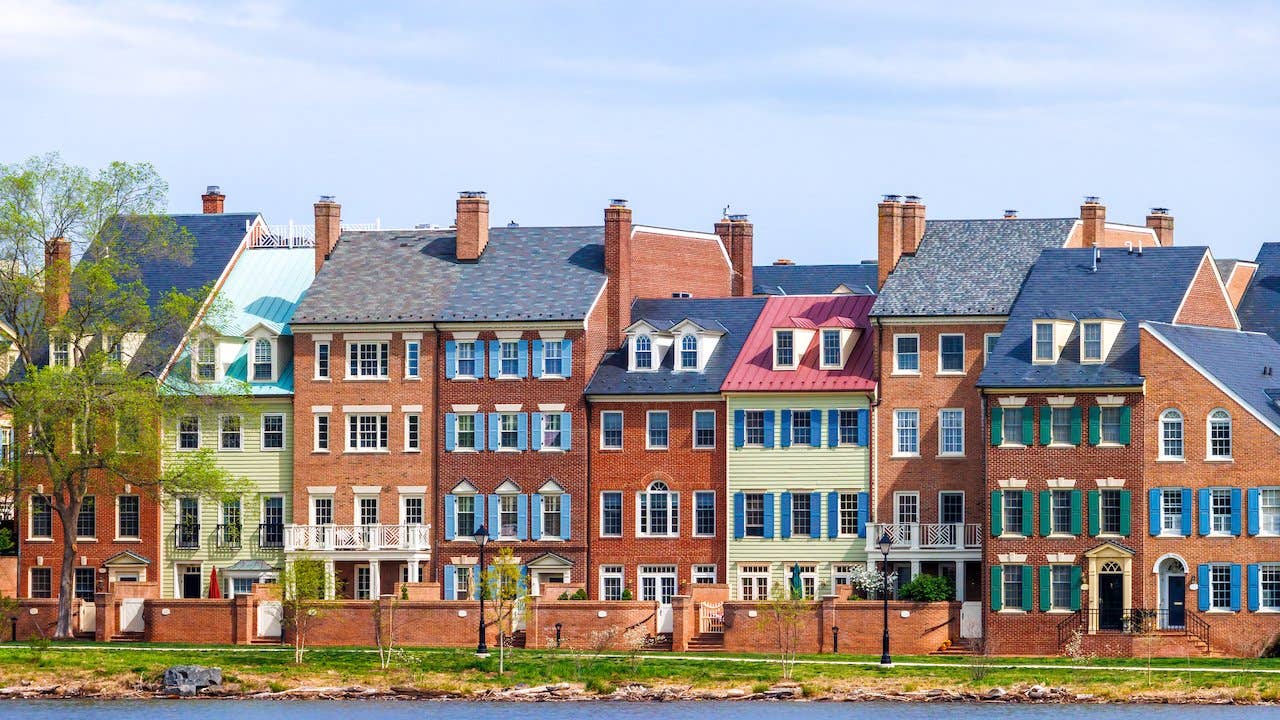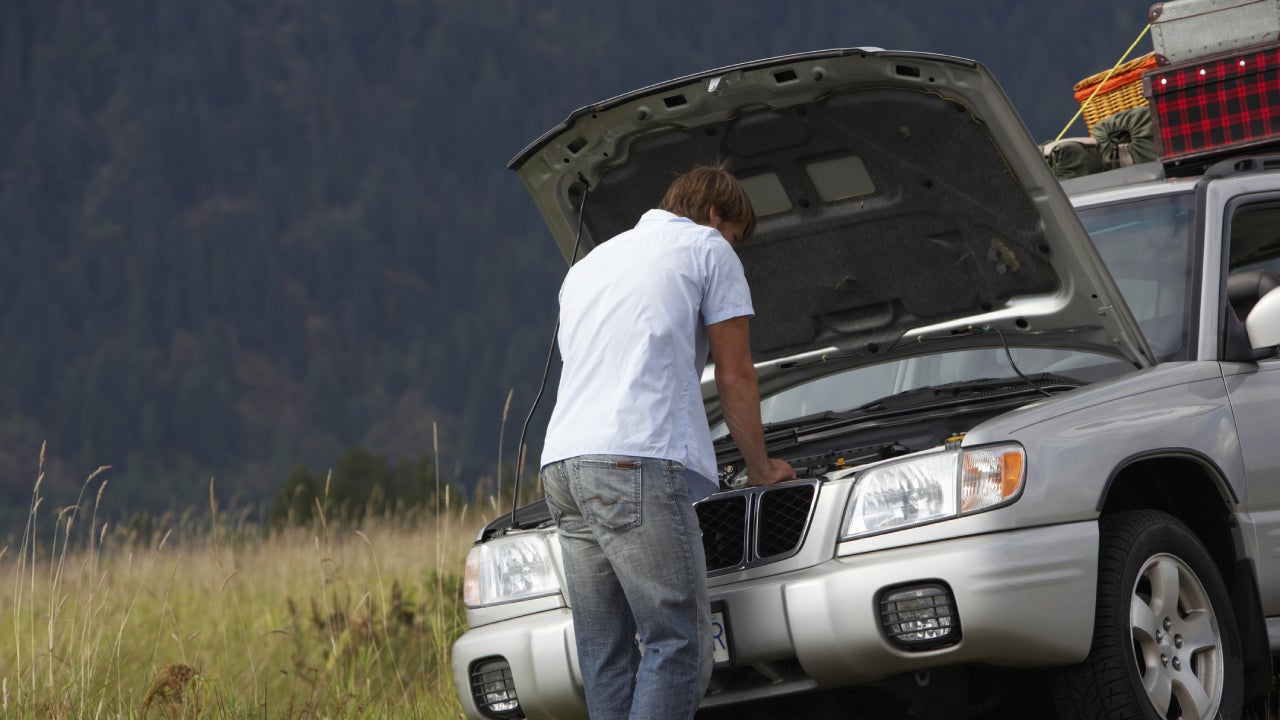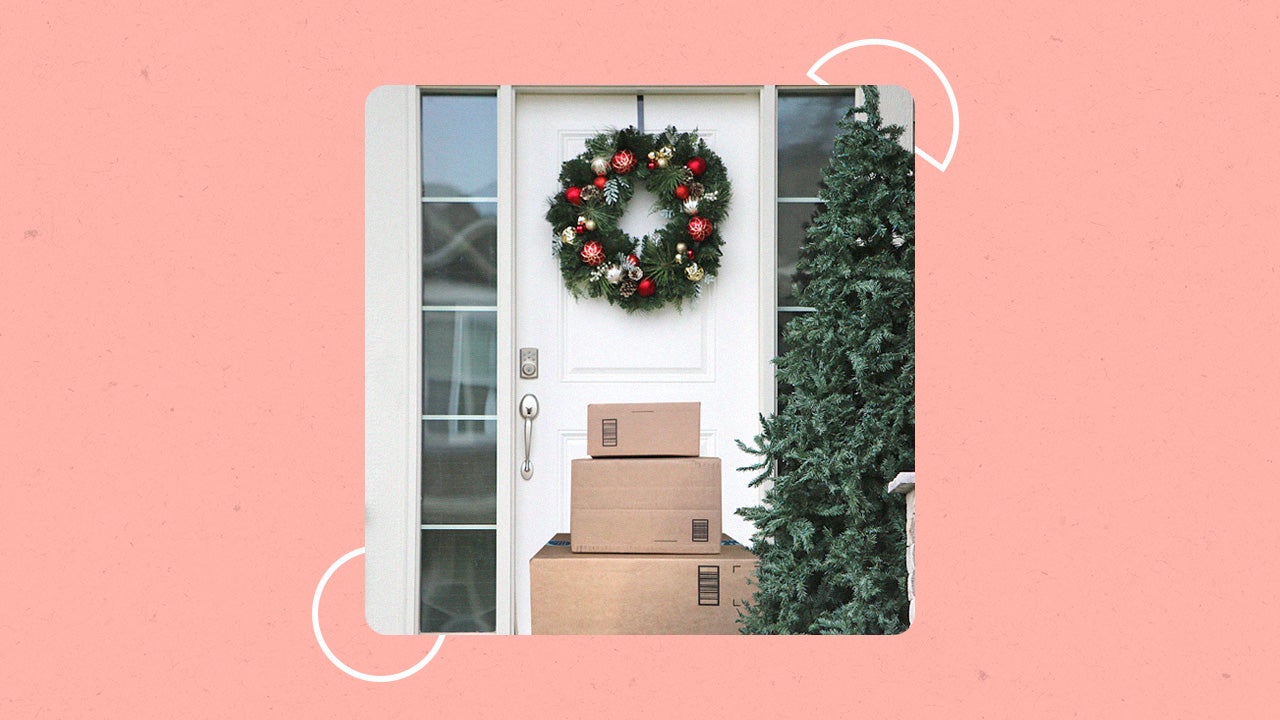Buying a house in Virginia: A how-to

Thinking about buying a house in Virginia right now? You might feel overwhelmed. Median prices across the state hit $397,000 in June 2022 — a 7 percent increase from the year before. But don’t let that number discourage you or make you wonder whether you should wait to buy a house: Virginia is big, and the median sale price is heavily impacted by those buying at the northern border, near high-priced Washington, D.C. You don’t need lobbyist-level cash to afford life in the rest of the state. In Roanoke, for example, the median sale price is an affordable $190,500, according to Redfin data. Even oceanfront living is getting more manageable: Median prices in Virginia Beach have dropped by $15,000 to $340,000 since April.
No matter where in Virginia you’re thinking about buying, you’ll need some help dealing with the current seller’s market in the commonwealth. Read on to avoid any stumbles along the way to buying a house in Virginia.
How to buy a house in Virginia
Decide where to live in Virginia
While you focus on buying a house in Virginia, you also need to think about how much it will cost to live there. Gas prices, doctor visits, electric bills, grocery runs: The cost of living can be quite different across the state. For example, Bankrate’s cost of living calculator shows that living in Richmond is around 40 percent cheaper than in the Beltway towns of Arlington or Alexandria.
In addition to thinking about the immediate benefits of a home in Virginia — the bustle of a college town like Blacksburg, for example, or the ocean views of Virginia Beach — make sure you factor in considerations about your long-term plans. Buying a home comes with a lot of one-time transactional costs, so you should aim to find a home where you and your family can grow.
Tips for buying a house in Virginia
All counties in Virginia are different — especially when it comes to figuring out the kind of loan you’ll need to buy a home there. Conforming loan limits vary by county here, and they are higher based on the local market. If you’re trying to buy a home near D.C., you’ll be able to borrow more money before crossing the threshold into the jumbo loan landscape — up to $970,800 in Arlington, for example. In lower-priced areas, $647,200 is the cutoff. If you do think you’ll be in the market for a jumbo loan, know that you’re going to need excellent credit and a bigger down payment to qualify.
Things to know about buying a house in Virginia
- Property taxes: As you compare different spots to call home, be sure to estimate your annual property tax bill. Rates vary by county in Virginia. For example, homeowners in Fauquier County pay $0.903 for every $100 of home value, while homeowners in Fairfax County pay a base rate of $1.11 per $100 of value. Some properties might fall into districts with additional taxes for transportation improvements or other public projects. Your real estate agent can help you sort through property tax implications in your specific area.
- Dual agency: Dual agency is legal in Virginia, which means that the real estate agent you hire might also represent the owner of the home you want to buy. You might also wind up working with designated agents, which means that your agent and the seller’s agent have the same boss or work for the same brokerage. In either case, you’ll need to provide written consent if you agree to the arrangement.
- Seller’s disclosure: While most states require sellers to share lengthy disclosure forms about any known defects in the home’s condition to protect buyers, Virginia’s laws are skewed more in the favor of the seller. There is a common disclosure form, but the language essentially spells out that the buyer needs to do “due diligence” to uncover any issues. With that in mind, getting a home inspection is critical.
- Closing costs: In 2021, Virginia closing costs averaged $6,346, according to data from ClosingCorp. While the seller is responsible for a portion of the real estate transfer taxes, buyers in Virginia tend to bear the brunt of these closing costs, including state and city deed transfer taxes and state and city recordation fees. Additionally, make sure you budget for other fees from your lender that will be payable at closing.
- Attorneys: Virginia law does not require you or the seller to hire a real estate attorney to oversee the transaction. However, it’s smart to enlist a legal expert anyway. Buying a house is likely the biggest investment you’ll ever make, and it can be a complicated process.
- Climate and weather considerations: Only 3 percent of Virginians have flood insurance, but that number should be much higher. Between the Potomac, James and York rivers, the Chesapeake Bay, the Atlantic Ocean and more, Virginia has plenty of water that creates potential risks for anyone buying a home. Be sure to factor in the cost of additional coverage when looking at homeowners insurance in the state.
How much house can I afford in Virginia?
Should you buy a new home in Virginia? It depends on how much you can afford to spend. Start by thinking about how much money you earn. You want to avoid spending more than 28 percent of your monthly income on your monthly mortgage payment. However, a lender is also going to scrutinize your other debts to make sure you can comfortably afford to make those payments in addition to a new housing bill. Most lenders will want your debt-to-income ratio to be less than 50 percent, so it may be smart for you to make significant progress on paying off your credit card bills and car loan before starting your house hunt. Bankrate’s new-house calculator can help you crunch the numbers.
Saving for a down payment in Virginia
If you’re having doubts about your ability to come up with a down payment, you may be able to qualify for some help. Explore Virginia’s programs for first-time homebuyers, which include options for a second mortgage that can pay up to 5 percent of a property’s purchase price and grants that can help cover a portion of the down payment or closing costs.
If you’re on an especially tight budget, there are solutions for low-income homebuyers, too. For example, the Virginia Housing Development Authority offers a matching program to help you fast track your savings strategy with VIDA, or Virginia Individual Development Accounts. You can score $8 for every $1 you save, up to $4,000 of matched funds. Local programs can help buyers with smaller bank accounts, too. In Roanoke, for example, a four-person household earning less than $58,500 can qualify for up to 10 percent of a home’s purchase price with a program called Tap Into Hope. As you calculate how much money you need for a down payment, be sure to explore nationally available down payment assistance programs, too.
Get preapproved for a mortgage
Getting preapproved for a mortgage is the first step to getting a seller in Virginia to take you seriously. The whole process is fairly painless, too. Gather all the information about your finances, and find a lender that can issue your pre-approval with an automated online process. If you’re self-employed or have a more complicated financial picture, preapproval might take just a bit longer — but it’s free, and it’s essential to showing your credibility as a buyer.
Find the right lender
After you get preapproved, there’s still work to do to find the best lender. Sure, you found a company that offered a preliminary approval, but that doesn’t mean you found the best deal. Be sure to compare a few different options for Virginia mortgage rates and lenders. You want to be sure you have a clear picture of how much the loan will cost, how much money you’ll need to hand over to cover fees and how quickly each company can get you to the finish line (aka, closing day).
Find a local real estate agent in Virginia
Buying a home in Virginia can be quite complicated, so finding the right real estate agent to help you navigate the process makes a huge difference. The seller will be responsible for paying your agent’s commission, so it’s not an upfront cost that should cause you any concern. Ask family or friends who have gone through the buying process for recommendations. And if you’re buying from out of state, do your research to find a local agent who fits your needs. When you’re many miles away and can’t tour a property in person, an agent who really understands what you’re looking for is even more crucial.
Start house hunting
With your preapproval letter in hand and your real estate agent at your side, it’s time to start looking at places that catch your eye. Go into the process with an idea of what you simply must have, and what you might be willing to do without. House hunting is a game of give-and-take. For example, if a fourth bedroom is a priority, are you willing to look in an area that will require a longer commute to work? Do you absolutely need a two-car garage, or can one member of the family deal with parking on the street?
Make an offer
When you find a place you love, it’s time to put together an offer that will impress the seller. So far in 2022, homes here have been selling in about 22 days, according to Virginia Realtors, so you will need to act fairly fast. Your agent can help you figure out an appropriate price, and he or she can also give you tips on making your offer stand out from the crowd. For example, maybe a rent-back agreement or a longer closing timeline would be helpful for a seller who needs some extra time to move out.
Get a home inspection and appraisal
In a seller’s market, plenty of buyers have considered waiving a home inspection to make their offers look even more appealing. Buying in Virginia is a different ballgame, though: Since sellers aren’t required to disclose much of anything here, that professional examination is vital to make sure that the property is indeed worth your money.
If you’re financing the purchase with a mortgage, your lender will also require an appraisal. The lender needs to know that the property is worth the investment — after all, they’re the ones putting up the money. If you default on the loan for whatever reason, they need reassurance that they can recoup their losses. And if the appraisal comes back lower than your offer price, you will need to come up with the difference or get the seller to agree to the appraised amount.
Final walk-through and closing on your new Virginia home
Just before your closing day (or maybe even on it), your agent will schedule a final walk-through. This is your last opportunity to double check the property, verify that any issues from your inspection have been addressed and feel confident about the condition of the home. If you feel satisfied, go to your closing to check off the last items on your journey to becoming a homeowner. These items essentially involve two things: Paying for expenses and signing your name on many dotted lines. This process will probably take around an hour or two, and your hand will probably cramp. It’s worth it, though: When you’re done, you are officially a Virginian. Go unlock your door, and raise a toast to being a member of the commonwealth.
FAQs
-
It depends on the home price, your loan’s down payment requirements and your closing costs. For example, on a $400,000 house, you would need at least $12,000 for a down payment (3 percent of the purchase price), and likely more. Plus, you’ll need enough cash to cover your portion of the closing costs. In 2021, the average bill for settlement fees in Virginia totaled 1.7 percent of the purchase price, which would be $6,800 on this purchase. Closing costs can vary greatly depending on your lender, though. You may need to pay an origination fee for the loan and other expenses, which can wind up making your closing bill much higher.
-
The past two years have been very challenging for buyers in Virginia, and rising mortgage rates haven’t made things any easier. However, the summer of 2022 showed signs of hope. Data from Virginia Realtors shows that the number of listings increased by around 1 percent in June — the first time that supply has gone up in Virginia in more than seven years. Another bit of good news: The number of listings with price drops has steadily increased throughout 2022, according to Redfin. So buying here is becoming easier.
-
Down payments depend on the price of your home and the type of loan you’re planning to apply for to finance it. If you have great credit and you’re OK with paying private mortgage insurance, you might be able to put down just 3 percent of the purchase price on a conventional loan. On a $400,000 home, that’s $12,000. If you don’t want to pay for private mortgage insurance, you will need to be prepared to put down 20 percent of the purchase price of the home.
Why we ask for feedback Your feedback helps us improve our content and services. It takes less than a minute to complete.
Your responses are anonymous and will only be used for improving our website.
You may also like

Mechanical breakdown insurance

How to protect your home from porch pirates during the holiday season




